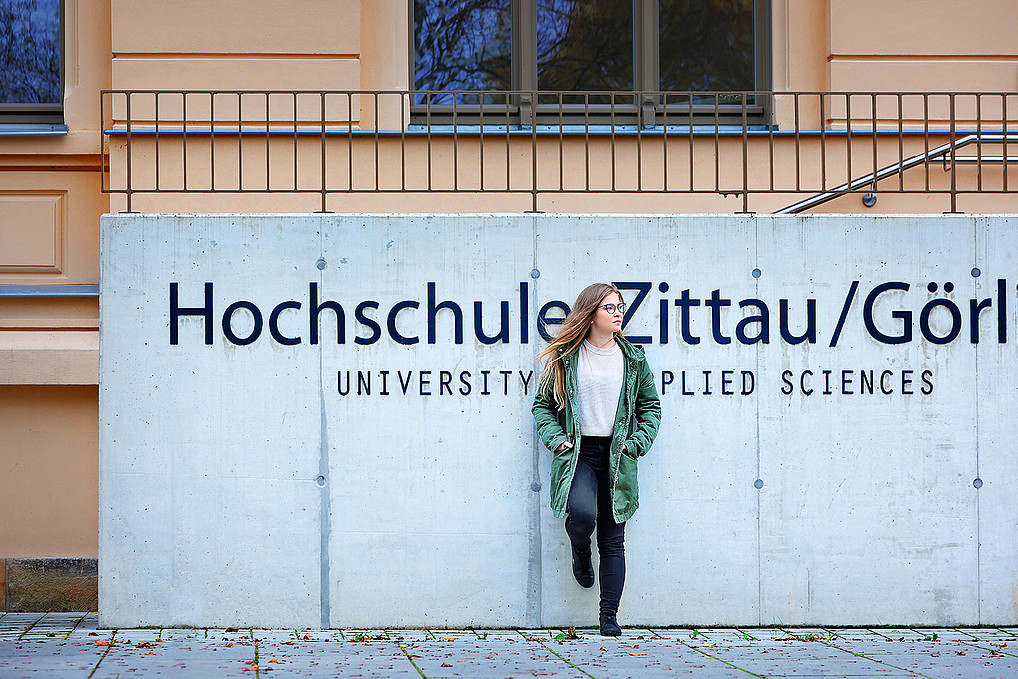Dual study or not? Emilia has tried both and found many advantages in cooperative engineering education (KIA).

Choosing a career is a difficult topic for many people. When did you decide that you wanted to study later?
Actually, only after I graduated from high school. I wasn't sure for a long time whether I would be able to study. My parents encouraged me to just give it a go.
Today you are studying electrical power systems. Did you already have a soft spot for science at school?
I enjoyed science subjects the most at school. As a supplement, I took art in my second advanced course because I could imagine studying graphic design or architecture before sixth form. However, my enthusiasm for painting waned after two years.
So it wasn't art after all, but energy technology. You enrolled on this course at HTWK Leipzig after graduating from high school. What motivated your choice?
I come from Oybin in the Zittau Mountains and didn't want to study too far away. And I now knew that it should be a natural sciences degree course. So I worked my way through a catalog of study options and came across Energy Technology. The modules on the course and the prospect of a career as an engineer sounded exciting.
But at some point, doubts arose. How did you realize that studying in Leipzig wasn't the right choice and thought about changing?
It wasn't the degree course that made me want to change, it was much more the city and the environment. So I looked for a university closer to home and applied for the same course at Zittau/Görlitz University of Applied Sciences, with the advantage that this time it was a cooperative engineering course.
What exactly is a cooperative degree program?
I am now studying electrical power systems and at the same time training to become an electronics technician for devices and systems. This form of dual study is called cooperative engineering education, or KIA for short. Training is integrated into the degree course and the two go hand in hand.

Are there any other differences between the "normal" and dual study programs?
If you compare the courses, the basic studies are similar. In both, you take modules such as higher mathematics, materials engineering, physics, technical mechanics, etc. The special thing is the flexibility. In my cooperative degree course, I can choose between two specializations in the 6th semester. I can either specialize in 'Renewable Energy Systems' or 'Smart Grids and Installations'. And I can decide whether I want to pursue a Bachelor's degree or a Diplom.
And you complete the training part in an external company?
Not directly, my practical partner is the Zittau/Görlitz University of Applied Sciences itself. My training includes basic metal training and getting to know installation technology. As an electronics technician for devices and systems, I'm mainly involved in developing circuit boards, soldering and assembling components. This is how we create electronic devices and systems, e.g. a power supply unit for different voltage levels or an amplifier for a music system.
How does this combination of theory and practice feel for you?
I like it very much; the practical experience gives me an even better understanding of the theory. Ideal cases are usually dealt with and calculated during the course. These cases are the best for understanding, but in practice there is never an ideal case. You are therefore "forced" to find other solutions. Incidentally, the dual study program "KIA+" is also available specifically for graduates of the 10th grade and the following applies to everyone: we naturally also receive a training allowance for the training part.
In the Campus Talk, Emilia explains how she came to do her dual study program.